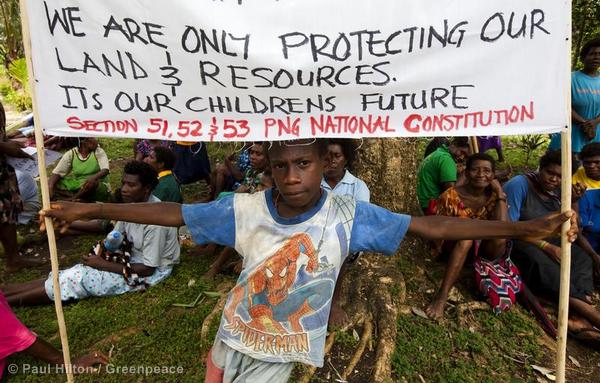Despite criticism that many voters were unable to vote, polling in the largely peaceful eighth PNG national elections closed on Friday 13 July.
The bitter pre-election battle between former PM Sir Michael Somare and the leadership team that ousted him in August 2011 – Peter O’Neill and Belden Namah -has hopefully been put to rest. The predominantly rural population will now be looking to government to meet their needs rather than lining Minster’s pockets.
No single party will win enough seats to form a government in its own right and the race will be on over the next few weeks to see who can form a coalition with enough seats to form government.
Government services such as education and health were major issues during the election with many parties promising greater funding particularly in poor rural communities.
Successive governments have relied on resource companies to provide many rural services which more often than not results in environmental destruction and community fragmentation. Logging companies eager to export tropical logs from PNG’s remaining primary forest have continued to exploit the desperation of rural communities by promising health clinics, classrooms, roads and jobs in return for lucrative logging confessions. These promises are rarely delivered.
Between 2003 and 2011 community desperation and government facilitation led to 5.1 million hectares of customary owned land being given to logging companies.
Under a system known as Special Agricultural and Business Leases (SABLs), customary owned land was first leased to the state by small groups of unrepresentative landowners then leased back to companies set up by these same landholders. The land was then subleased to foreign owned logging companies with the promise that agricultural development would result and much needed services would be delivered. Sadly, what has occurred is an escalation of primary forest, threatened species and habitat loss and community conflict. Few services have been delivered and even fewer jobs.
These unrepresentative customary landowners were lured by logging companies to betray their neighbours and sign irresponsible subleases that will burden their communities for generations.
But landowners are fighting to get their land back. Landowners from all over PNG recently formed a network to better support embattled rural communities who have lost their land. The network called Canopy Watch has also launched a website to better project their struggle to the world. The website shows video testimonies of landowners who have lost their land and the devastation that has been brought to their forests and social systems.
Many of the testimonials are from landowners who gave evidence to the recent Commission of Inquiry into the controversial SABLs. The findings of this nationwide investigation is hoped to be tabled by the new government when it is formed in August.
Many Papua New Guineans are demanding that the new government act on the recommendations of the Commission and overturn all SABLs found to have been fraudulently or illegally granted or granted against the wishes of the majority of the customary landowners in the areas affected.
Landowners are waiting to get their customary land back from logging companies. They hope for a new government that puts the rights of indigenous Papua New Guineans ahead the profits of logging companies.
Sam Moko, Greenpeace Forests Campaigner in PNG
TAKE ACTION
Contact Australia’s Foreign Minister Bob Carr – [email protected] or Senator the Hon K. J. Carr, The Senate, Parliament House, CANBERRA ACT 2600 – and ask him to make representation to the PNG Government that ensures the findings of the Commission of Inquiry in to SABLs will be tabled in the PNG Parliament and all its recommendations will be implemented in full.


